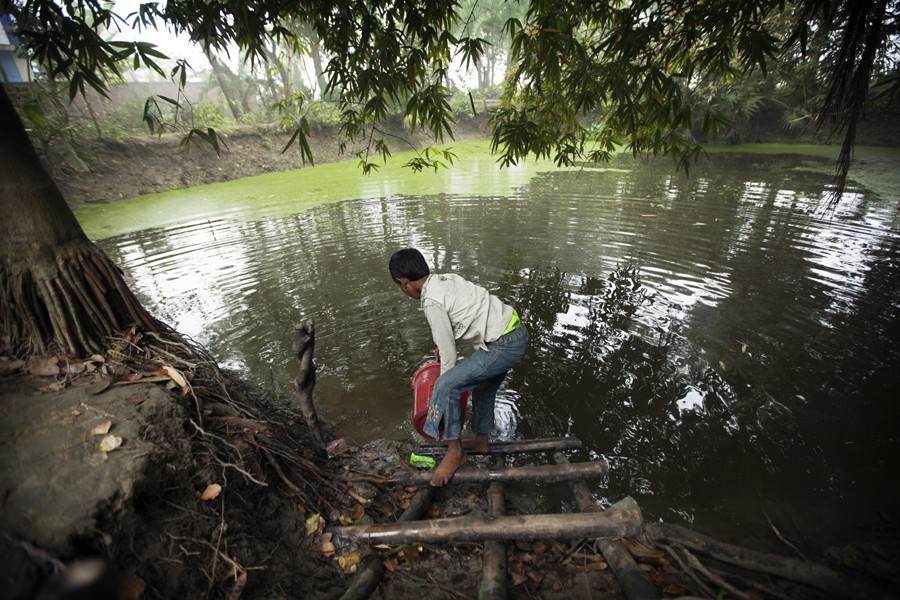Siyam Hoque
Published:2020-04-30 18:13:49 BdST
BD water contains harmful pharmaceutical residues, reveals int'l research
NEWS DESK
There is hazardous level of pharmaceutical residues in water of Bangladesh, which may help develop bacteria and fungi that are resistant to the medicines used for treating human infection, an international research has revealed.
According to it, the sample waters held a cocktail of pharmaceuticals and other compounds, including antibiotics, antifungals, pesticides, and flame retardants.
Scientists from the University at Buffalo (UB), USA and International Centre for Diarrhoeal Disease Research, Bangladesh (icddr,b) conducted the research, the US-based Science Daily reported recently (April 20).
The researchers tested a lake, a canal and a river in Dhaka. They also sampled water from ditches, ponds and drinking wells in a rural area known as Matlab.
An analysis revealed that the waters held a cocktail of pharmaceuticals and other compounds, including antibiotics, antifungals, anticonvulsants, anesthetics, antihypertensive drugs, pesticides, flame retardants and more.
However, not all of these chemicals were found at every location, and sometimes amounts detected were low.
But the ubiquity of contamination is concerning, says lead scientist Diana Aga, an environmental chemist at UB.
"When we analysed all these samples of water from Bangladesh, we found fungicides and a lot of antibiotics we weren't looking for," says Aga, PhD, Henry M Woodburn Professor of Chemistry in the UB College of Arts and Sciences.
"This kind of pollution is a problem because it can contribute to the development of bacteria and fungi that are resistant to the medicines we have for treating human infection," she said.
The report said the canal and river in Dhaka contained a medley of chemicals. Of note, scientists discovered multiple varieties of antibiotics at these two sites, along with antifungals. While researchers generally found fewer antimicrobials at the rural test locations, some antibiotics were found at certain sites, and antifungal agents were common.
The discovery of antimicrobials in urban areas was not surprising, as these chemicals are often found in human urine and later in wastewater that is released into rivers, Ms Aga noted.
"It is important to note that antimicrobial contamination of the environment is not unique in Bangladesh, but expected in many countries throughout the world where antimicrobial use is poorly regulated in both human medicine and agriculture, which is generally the case in lower-middle income countries of Asia," says study co-author Shamim Islam, MD, clinical associate professor of pediatrics in the Jacobs School of Medicine and Biomedical Sciences at UB.
Unauthorized use or reproduction of The Finance Today content for commercial purposes is strictly prohibited.


